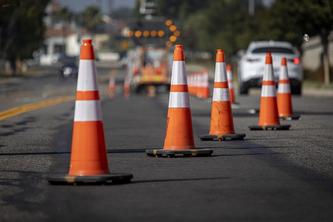
After thorough review and analysis, the University of Minnesota will adopt a market-driven approach to development at UMore Park. This path is reflected in a revised vision and strategy for the unique and valuable Dakota County land.
This week, the University’s Board of Regents considered and approved a resolution that prioritizes maximizing financial return, implementing market-driven and market-sensitive approaches, avoiding financial risk and reflecting the U’s core mission at UMore Park. Additionally, the University will not take a direct role in developing business, commercial and residential elements of the property. It will seek private sector developers and only directly participate in elements such as roads, storm water management, utilities, zoning changes, etc. on an exceptional basis.
Activity and planning at the 5,000-acre site, just 25 miles from the Twin Cities campus, has been ongoing since 2006. Since then, a master plan was developed; a legacy fund to support students was created; a 40-year mining contract with Dakota Aggregates was signed, with mining beginning in fall 2011; and an Alternative Urban Area-wide Review was completed in August 2013. All of these actions have readied the property for development, but questions and issues remained. That led U of M President Eric Kaler to charge senior leaders in October 2014 to respond to six specific questions about the U’s future role.
The seven-member committee considered three key issues and made the following related recommendations in its January 2015 report:
- Environmental conditions and costs. The U will complete only remediation required by the Minnesota Pollution Control Agency (MPCA) and continue to pursue recovery of costs from other responsible parties. Any further clean up will await future market-driven development.
- Research impacts. Uniform and flat soils, along with its proximity to campus, make UMore Park a unique and valuable resource for advancing agricultural research. In 2014, 518 acres were used for $6.3 million in cropping research studies. Currently, an agreement with Dakota Aggregates allows the company to mine certain research areas with only a three-year notice period, subject to University approval, making planning and securing grants for new research risky and uncertain. Therefore, the U will enter into discussions with Dakota Aggregates on a longer moratorium on mining certain plots.
- Financial impacts. Long-term development at UMore Park will require significant relocation costs to relocate a variety of activities currently there. which would be spread over the next 40-50 years and would lead to lost income. The U should not incur these costs until necessary to achieve market-based development goals.
With adoption of the new vision and strategy, UMore Development, LLC will be dissolved. In its place, an internal cross-disciplinary management team will be charged with management oversight of the property.
“Thanks to the committee’s work, we now have a much more robust understanding of the costs related to lost agricultural research and development,”,” said Kaler. “Given changing market conditions and our priorities in light of the Twin Cities Strategic Plan, this new vision represents the best way to move forward.”
Economic growth through University/business partnerships
UMore Park is part of the U’s $8.6 billion annual impact on the state’s economy. Enhancing and strengthening ties to business and corporate partners statewide through increased outreach and strategic engagement is the goal of the new Office of University Economic Development (UED). In short, UED serves as a front door to U of M resources for external partners on issues concerning regional and statewide economic development.
UED Executive Director Maura Donovan updated the Board on UED’s work with all five U of M campuses, the significant activity underway across the institution and initiatives currently in place that are yielding encouraging results.
In less than one year, UED has, among many other items:
- developed a partnership with the University of Minnesota Foundation to co-lead the Corporate Engagement Workgroup and facilitate a university-wide, strategic approach to corporate engagement;
- partnered with U of M Extension to form an Economic Development Network, part of the broader Issue Area Network initiative supported by the Office for Public Engagement, to provide a collaboration forum for units and centers engaged in economic development activities throughout Minnesota;
- developed a partnership with the Minnesota Department of Employment and Economic Development to support business retention, expansion and recruitment efforts across the state; and
- planned a statewide economic development “Road Show” for this spring. The goal is to reinforce UED’s role in helping connect statewide partners with University capabilities and building relationships that reinforce collaborative economic development opportunities.
Moving forward, UED will work to increase external connections, develop new partnerships and emphasize strategic engagement with key businesses, corporations and industries.
The Board also:
- approved a revision to the U’s 2016-17 biennial budget request to include Governor Dayton’s proposed $30 million investment in the Medical School and modify the existing request for the Healthy Minnesota initiative, which aims to address health care workforce shortages and improve health across Minnesota. Dayton’s proposal will help recruit and retain top faculty, attract the best medical students and meet the health needs of all Minnesotans.
- authorized a $15 million capital budget amendment to continue designing the Athletes Village project on the Twin Cities campus. These funds will be used to complete schematic designs for new practice facilities for football and men’s and women’s basketball and the Center for Excellence — an academic-and nutrition-focused building for all student-athletes.
- reviewed a plan to diversify the faculty. The initiative incorporates what research evidence says are best practices for hiring faculty of color, particularly those from underrepresented populations. Working together, the Office for Equity and Diversity and Provost’s Office will continue to encourage the University community to remain engaged in long-term strategies to recruit, retain and promote diverse, field-shaping faculty. These goals support the U’s commitment to ensuring all faculty feel welcome and thrive.
- discussed academic support and performance of Gopher student-athletes. The McNamara Academic Center (MAC) works with more than 700 Gopher student-athletes to ensure a positive experience and timely graduation. This work has resulted in all-time highs in four and six-year graduation rates in 2013-14, as well as record Academic Progress Rates (APR) and grade point averages. MAC Director Lynn Holleran also reviewed current checks and balances to protect against academic fraud.
- approved the appointment of a new dean for the College of Biological Sciences. Valery E. Forbes, Ph.D., will begin her work July 31.
The Board will meet again on March 26-27, 2015. For more, click here.
- Categories:
- Agriculture and Environment





